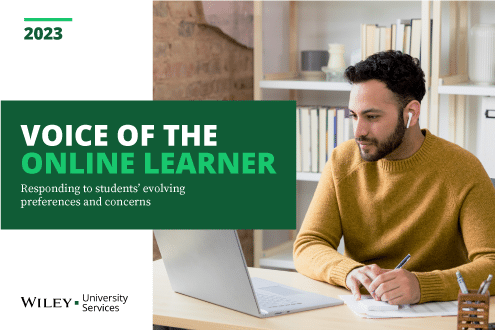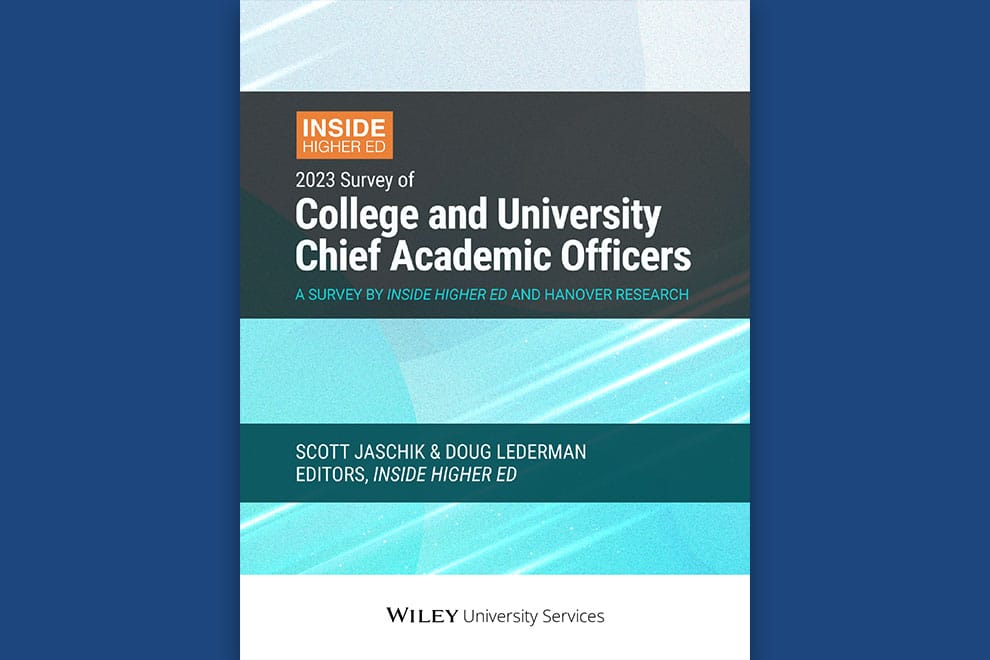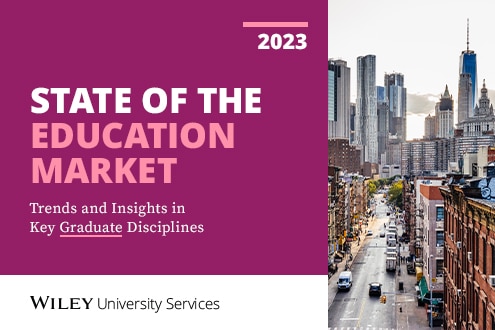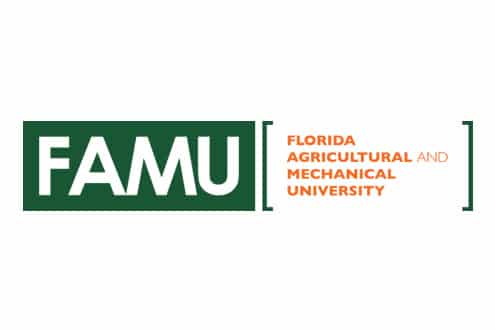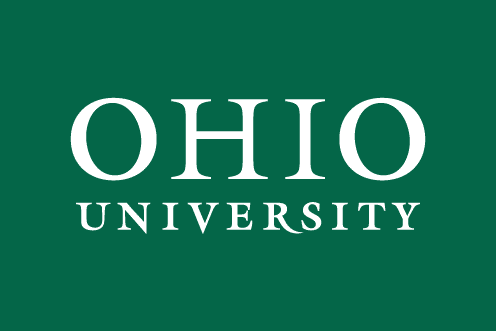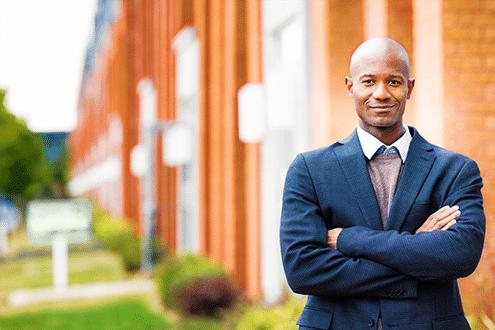
Wiley University Services sat down with three institutional faculty members — Bobby Goldwater, Georgetown University, Lisa Haas, Benedictine University, and Kingsley Gnanendran,The University of Scranton — to talk about the trending topics and themes they saw at this year’s OLC Accelerate conference in Orlando, Florida. All three are a part of the Wiley Fellows initiative, which aims to foster a community of practice among Wiley’s institutional partners focused on innovations in online teaching and learning.
Wiley University Services: Each year the OLC Accelerate conference acts as a gauge for where online learning stands in higher education, providing insights into online learning’s successes and challenges. Based off of the sessions and discussions you participated in, what themes or notable topics seem to be top-of-mind in the online higher education space?
Bobby Goldwater (Georgetown University): Based on what I saw, there certainly seems to be a large focus on video and media in general. It seems that educators recognize the importance and value of media, but they are intimidated by the perceived amount of involvement needed to introduce a media plan. Cost also appears to be a strong intimidating factor.
The reality is that faculty and schools can do media very professionally with big budgets, studios, teleprompters, and equipment, but they can also do it for practically nothing (think smartphones). In Georgetown’s online Sports Industry Management program, we have both types of media – very professionally produced, as well as Skype and mobile device media.
Another topic, which I never considered, that seemed to be very present at OLC was online proctoring. I didn’t realize that there is so much emphasis on proctoring, and now I certainly recognize that there is an important need for it.
Lisa Haas (Benedictine University): I saw a lot of discussion around how to increase the feeling of community for students in an online classroom so that they feel they belong and have an engaged instructor. Similarly, I heard a lot around the topic of faculty development and training in online learning.
Did anything you see or hear strike you as surprising, interesting, or especially relevant to your online programs?
Kingsley Gnanendran (The University of Scranton): One thing I saw that stood out as particularly novel and relevant was the concept of virtual internships. Schools sometimes find it difficult to identify internships for students based on their specific geographic locations. But with virtual internships, this problem would be eliminated because students could do their internships, with real companies, remotely. This would provide significant value to students.
BG: I attended an interesting session on utilizing Twitter in a course, which was something I’d never considered before. The session focused on how to use Twitter in the classroom for students to engage with peers, others in the field, and with course content. I may not implement this immediately, but it’s an interesting new concept to think about.
LH: I’m very progressive in regards to education and I love all the information I heard about virtual and augmented reality, and the different ways to bring that technology into classrooms to make education more realistic. I really think it can better prepare students for the workforce they will be entering after graduation.
I had the opportunity to play around with some of the new technology and now I’m thinking about how it can be practically utilized. For example, some classes and programs, especially those in the sciences and medical fields, are harder to teach online, but I can see virtual reality making that easier. It would allow students to work hands-on and explore more, collaborate more, and create face-to-face experiences between students and instructors.
How has what you learned at OLC Accelerate either challenged or validated your thinking and approach in the online classroom?
BG: One session I attended about video usage in online programs validated everything we have chosen to do in Georgetown’s Sports Industry Management program, and that is very comforting to me. It also underscores the fact that we had a good idea, but we also had a thoughtful approach to underpin that. Ultimately, it’s good to get affirmation, which we can then share with others trying to do similar things.
LH: Based on what I heard, I am now thinking about engaging faculty at Benedictine University in another way and pulling them out of their comfort zone. We are currently trying to incorporate technology differently into some of the classrooms, and several faculty have been hesitant to try it. I have learned new ways to help them see technology positively, especially in regards to experiential learning.
Finally, now that you have had an opportunity to meet all of the other faculty involved in the Wiley Fellows program at OLC, how are you looking to benefit from and contribute to the community?
KG: First of all, the Fellows experience has been more than what I expected. It is a great opportunity to meet and interact with different types of faculty – from private and public universities, from different-sized institutions, and from both new and more mature online programs – who are facing similar challenges. Plus, Wiley brings their areas of expertise into the mix, such as community engagement, data analytics, and instructional design.
As part of my involvement in the program, I will be working on a research project that looks at the persistence of online students, specifically in the MBA program. With the help of my research partner, Holly Tapper from Saint Mary’s University of Minnesota, my goal is to identify and understand factors that make students persist in online programs by exploring data and analytics from the customer relationship management (CRM) system, the learning management system (LMS), as well as the institution’s Enterprise (ERP) system. We hope to use the knowledge gained to inform student support activities that institutions can implement to foster student success.
BG: Being a Wiley Fellow has been a surprising privilege. I’ve learned so much from this group of very talented and effective educators. My hope is that our group will successfully advance how higher education is taught. I love to collaborate, so when I’m in a room with people who are really smart, talented, and good at what they do, great things happen when we share ideas and work together for a common purpose.
For my part in the program, I will be working on a handbook around adjunct faculty with my partner, Sonja Walti, who is a program director at American University. As a current adjunct faculty member, I will provide perspective to other program directors to help them identify, hire, and train adjunct faculty to be effective instructors.
LH: I hope to be able to share what I’m doing and seeing in the higher education realm, especially in regards to alternative credentials, and be able to bring what I’m learning in the program back to my university to better serve more students. Additionally, I want to contribute to the growing literature and research around online learning, as well as be able to work with other universities and Wiley to develop a larger system that benefits more universities – even those outside the Wiley Fellows group.
For more information of the Wiley Fellows program and their individual research projects, click here. Or, visit our Resources page to read other Wiley Fellows’ general insights, opinions, and experiences with online learning.


